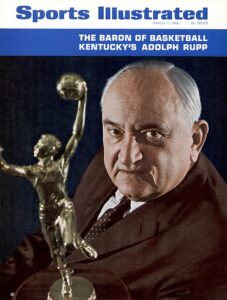A Convergence of History: Jewish Coaches Guide Florida, Auburn, and Duke to an Unprecedented Final Four
The hardwood of college basketball, a stage often illuminated by athletic prowess and strategic brilliance, witnessed a truly historic moment this year as the Final Four bracket revealed an unprecedented confluence of leadership. For the first time in the annals of the NCAA Men’s Basketball Tournament, three of the four teams vying for the national championship are helmed by Jewish head coaches: Todd Golden of the Florida Gators, Bruce Pearl of the Auburn Tigers, and Jon Scheyer of the Duke Blue Devils. This remarkable achievement transcends the realm of sports, offering a powerful narrative of dedication, perseverance, and the breaking of barriers within a highly competitive landscape. Their journey to this pinnacle is not just a testament to their coaching acumen but also a significant milestone in the broader story of Jewish representation and success in American sports.
Todd Golden, the relatively young but rapidly ascending leader of the Florida Gators, has orchestrated a remarkable turnaround for the program. Inheriting a team with potential, Golden instilled a culture of resilience and tactical flexibility that propelled the Gators through a challenging regular season and a fiercely contested NCAA Tournament. His strategic adjustments during crucial moments, coupled with his ability to foster a cohesive and motivated team, have been instrumental in their Final Four berth. Golden’s journey reflects a modern approach to coaching, blending data-driven analysis with an emphasis on player development and fostering a strong team identity. His calm demeanor on the sidelines belies a sharp basketball mind capable of dissecting opponents and implementing effective game plans. The Gators’ unexpected but undeniably earned spot in the Final Four under Golden’s guidance speaks volumes about his leadership and the program’s burgeoning future.
Bruce Pearl, a veteran coach with a well-established reputation for building and revitalizing programs, has once again guided the Auburn Tigers to the sport’s grandest stage. Pearl’s passion for the game is infectious, and his ability to connect with players on a personal level has consistently translated into on-court success. His Auburn teams are known for their tenacious defense, high-energy offense, and unwavering belief in themselves. Pearl’s journey has been marked by both triumphs and tribulations, but his unwavering commitment to his teams and his faith has remained a constant. His return to the Final Four with Auburn underscores his exceptional ability to cultivate talent, instill a winning mentality, and navigate the pressures of high-stakes competition. Pearl’s impact extends beyond the court, as he has also been a vocal advocate for social justice and a proud representative of his Jewish heritage.
Jon Scheyer, stepping into the formidable shoes of the legendary Mike Krzyzewski at Duke, faced immense pressure to maintain the Blue Devils’ tradition of excellence. In his relatively young head coaching career, Scheyer has demonstrated a maturity and poise that belies his experience. He has successfully navigated the transition, forging his own identity while honoring the program’s storied past. Scheyer’s Duke team has showcased a blend of youthful talent and seasoned leadership, playing with a cohesion and determination that has carried them through a demanding tournament bracket. His ability to connect with a new generation of players while upholding the high standards of Duke basketball is a testament to his leadership capabilities. Reaching the Final Four in his early tenure as head coach solidifies Scheyer’s position as one of the brightest young minds in the game and ensures the continuation of Duke’s legacy on the national stage.
The presence of Golden, Pearl, and Scheyer in the Final Four is more than just a statistical anomaly; it represents a significant moment of visibility and inspiration for the Jewish community. In a sport often dominated by narratives of different backgrounds and identities, their success highlights the diverse tapestry of leadership within college athletics. Their achievements serve as powerful reminders that dedication, talent, and hard work transcend religious or cultural boundaries. These coaches have reached the pinnacle of their profession through their skills and commitment, and their shared heritage adds another layer of significance to their remarkable journeys.
Beyond their shared faith, these three coaches embody different styles and have navigated unique paths to reach this point. Golden’s analytical approach contrasts with Pearl’s fiery intensity, while Scheyer represents the new guard of coaching, blending tradition with innovation. Yet, they are united by their exceptional ability to lead young men, foster teamwork, and achieve excellence on the court. Their teams reflect their leadership, showcasing distinct identities and playing styles that have captivated audiences throughout the tournament.
The implications of this historic Final Four extend beyond the current season. The success of Golden, Pearl, and Scheyer can inspire aspiring coaches and athletes from all backgrounds, demonstrating that leadership and achievement are not limited by identity. Their presence on this national stage provides a powerful message of inclusivity and the breaking down of stereotypes within the world of sports. It underscores the idea that merit and ability are the true determinants of success, regardless of one’s religious or cultural affiliation.
As the nation turns its attention to the Final Four, the storylines surrounding these three coaches add a compelling layer of narrative to the competition. Their journeys, their leadership styles, and their shared heritage create a unique and inspiring backdrop to the quest for the national championship. Regardless of which team ultimately hoists the trophy, the historic achievement of Todd Golden, Bruce Pearl, and Jon Scheyer leading their respective programs to this stage will undoubtedly be remembered as a landmark moment in college basketball history, a testament to their coaching brilliance and a significant milestone for Jewish representation in American sports. Their success serves as a powerful reminder of the diverse leadership that enriches the fabric of college athletics and the inspiring stories that unfold on the court.





